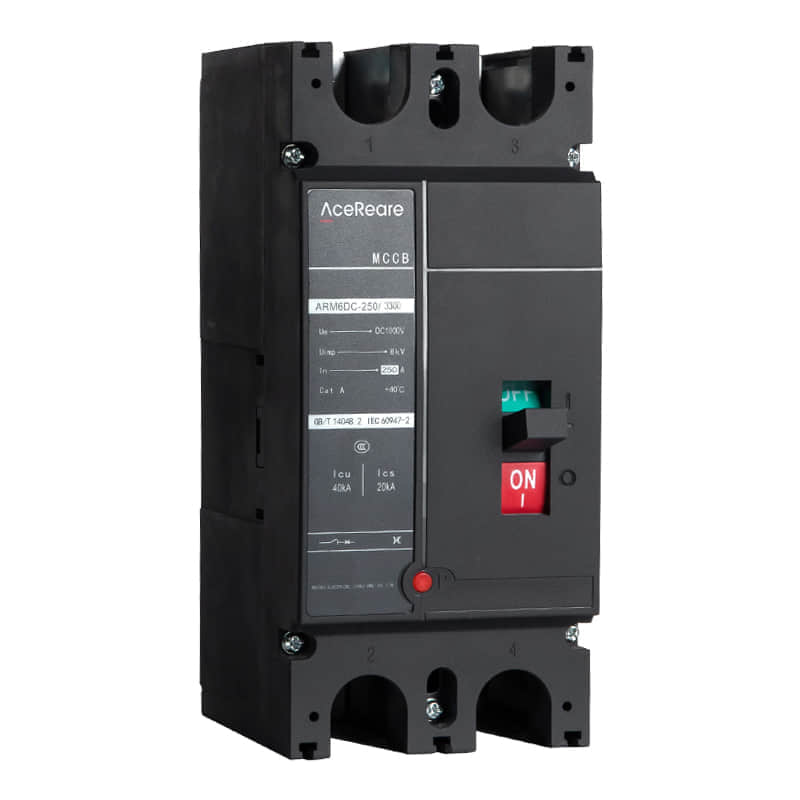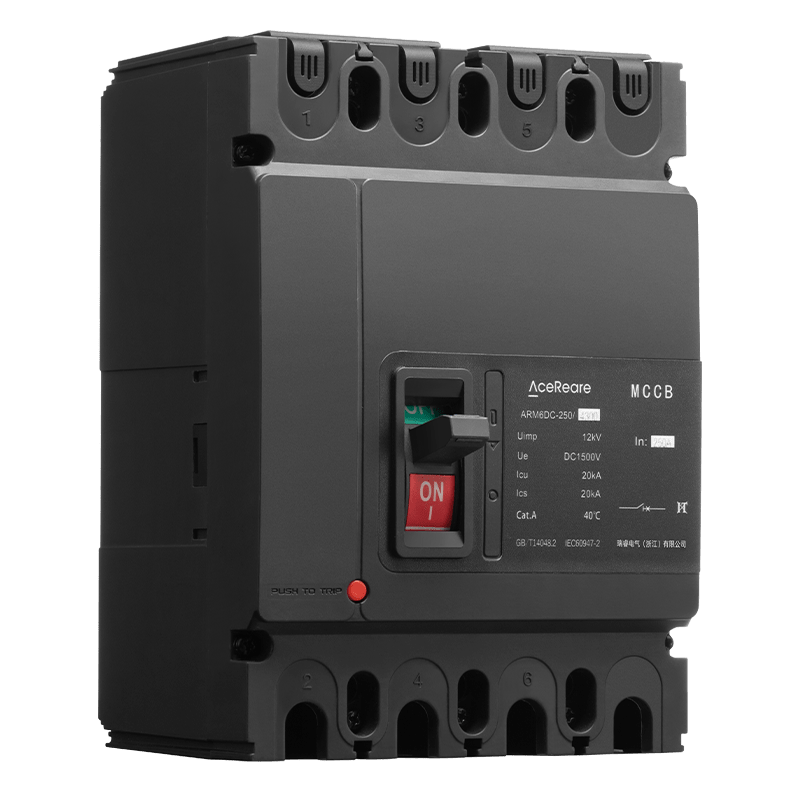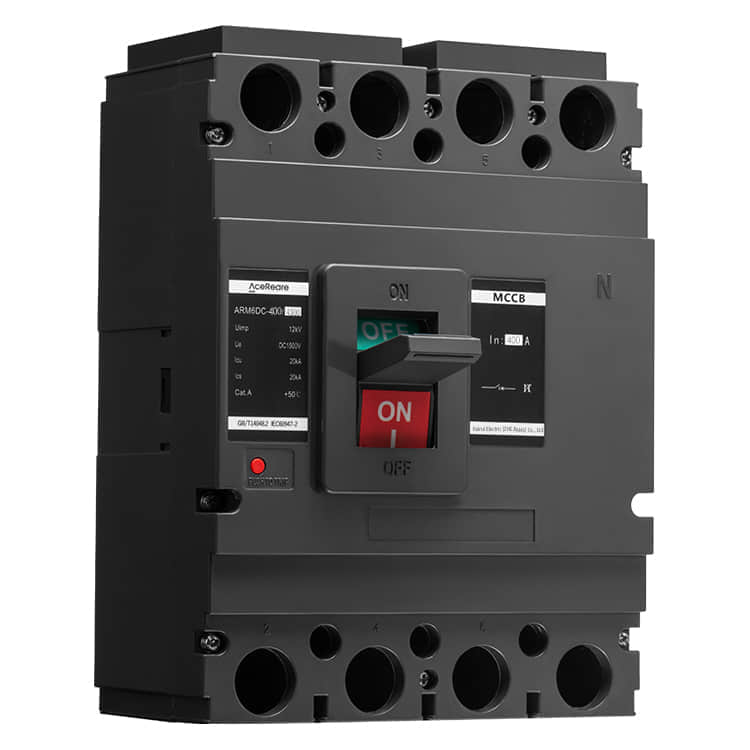In the realm of electrical systems, safety stands as the paramount concern. Ensuring that electrical circuits function properly while preventing overloads and short circuits is essential. Molded Case Circuit Breakers (MCCBs) are vital components in achieving this goal. In the context of direct current (DC) systems, DC Molded Case Circuit Breakers play a pivotal role in safeguarding against electrical mishaps.

Understanding the DC Molded Case Circuit Breaker

DC Molded Case Circuit Breakers, often referred to as DC MCCBs, are protective devices designed to interrupt the flow of electrical current when specific conditions, such as overcurrent or short circuit faults, are detected. These breakers are meticulously engineered to provide precise protection in DC electrical systems, which are common in various applications, including renewable energy systems, telecommunications, and industrial machinery. The Significance of DC MCCBs Overcurrent Protection:One of the primary functions of DC MCCBs is to safeguard against overcurrent situations. Overcurrent can occur due to various factors, such as equipment malfunction, circuit faults, or excessive load. DC MCCBs monitor the current passing through the circuit and trip when it exceeds the predetermined threshold, thus preventing overheating and potential damage to the system. Short Circuit Protection:Short circuits can result from accidental contact between conductors or equipment failure. DC MCCBs excel in rapidly detecting and interrupting the current flow during short circuit events. This swift action helps in minimizing the potential for equipment damage and electrical fires. Adjustable Protection Settings:DC MCCBs are designed to offer flexibility in terms of protection settings. Installers can adjust parameters like current rating and trip curves to suit the specific requirements of the application. This adaptability ensures that the breaker provides optimal protection while preventing nuisance trips. Remote Monitoring and Communication:In today’s interconnected world, remote monitoring and communication capabilities are increasingly important. Many modern DC MCCBs are equipped with communication interfaces, allowing operators to monitor the status of the breaker remotely and receive real-time notifications of faults or abnormalities. Applications of DC MCCBs DC Molded Case Circuit Breakers find application in a wide range of industries and settings: Renewable Energy Systems:DC MCCBs are integral components of solar photovoltaic and wind power installations. They protect the DC side of these systems from overcurrent and short circuit events, ensuring the safety and reliability of energy production. Telecommunications:Telecommunication equipment relies on DC power sources for backup and redundancy. DC MCCBs are used to protect these critical systems from electrical faults. Data Centers:Uninterruptible power supplies (UPS) in data centers often operate on DC power. DC MCCBs are installed to safeguard these vital facilities from electrical disruptions. Manufacturing and Industrial Processes:DC MCCBs are employed in various manufacturing processes, such as welding and metal cutting, where DC power is essential. They help maintain operational continuity by preventing electrical disturbances. Conclusion In conclusion, DC Molded Case Circuit Breakers are indispensable devices for ensuring electrical safety in direct current systems. Their ability to provide precise overcurrent and short circuit protection, coupled with their adjustable settings and remote monitoring capabilities, makes them ideal choices for a wide range of applications. As technology continues to advance, DC MCCBs will undoubtedly play an even more critical role in safeguarding electrical systems, promoting both safety and reliability in an electrified world.
